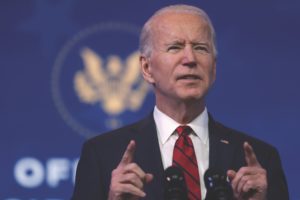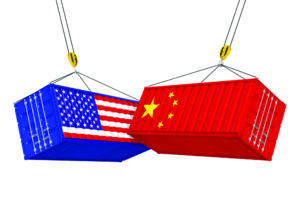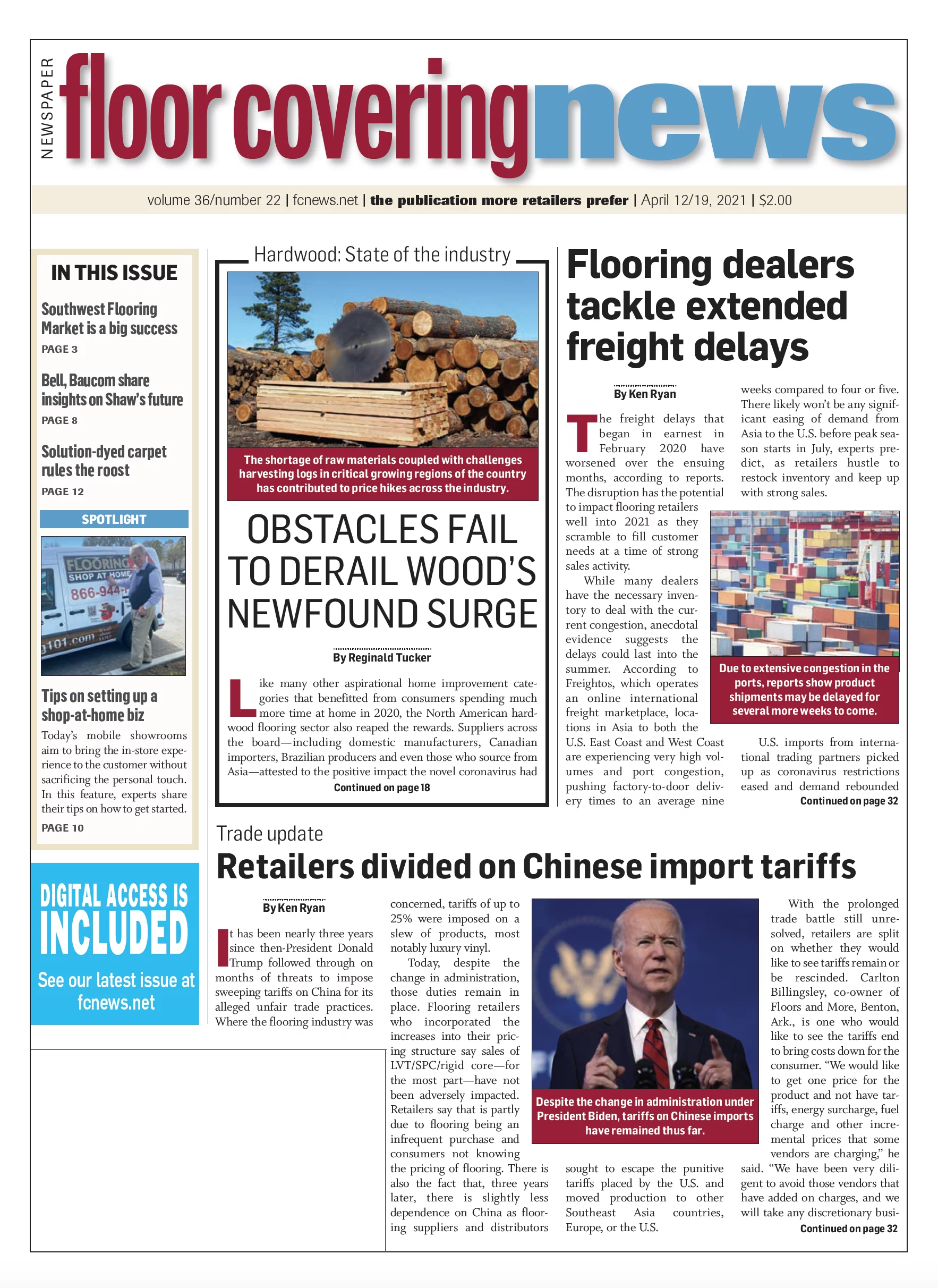 It has been nearly three years since then-president Donald Trump followed through on months of threats to impose sweeping tariffs on China for its alleged unfair trade practices. Where the flooring industry was concerned, tariffs of up to 25% were imposed on a slew of products, most notably luxury vinyl.
It has been nearly three years since then-president Donald Trump followed through on months of threats to impose sweeping tariffs on China for its alleged unfair trade practices. Where the flooring industry was concerned, tariffs of up to 25% were imposed on a slew of products, most notably luxury vinyl.
Today, despite the change in administration, those duties remain in place. Flooring retailers who incorporated the increases into their pricing structure say sales of LVT/SPC/rigid core—for the most part—have not been adversely impacted. Retailers say that is partly due to flooring being an infrequent purchase and consumers not knowing the pricing of flooring. There is also the fact that, three years later, there is slightly less dependence on China as flooring suppliers and distributors sought to escape the punitive tariffs placed by the U.S. and moved production to other Southeast Asia countries, Europe or the U.S.
With the prolonged trade battle still unresolved, retailers are split on whether they would like to see tariffs remain or be rescinded. Carlton Billingsley, co-owner of Floors and More, Benton, Ark., is one who would like to see the tariffs end to bring costs down for the consumer. “We would like to get one price for the product and not have tariffs, energy surcharge, fuel charge and other incremental prices that some vendors are charging,” he said. “We have been very diligent to avoid those vendors that have added on charges, and we will take any discretionary business to those who have made it easier to do business with by quoting us one price.”
Eric Mondragon, hard surface flooring buyer for RC Willey, with 15 locations in the West, said he understands the point of the tariffs but would love to see them rescinded “just to get prices rolled back on the upper-end products.” He added that tariffs have impacted his business in several ways. “First, it has increased the cost of goods which gets passed on to the consumer. Second, it has created an influx of lower-end products just to hit the sweet spot for the retail price point. Customers are less likely to upgrade now, which caused my average price to go down.”
Mike Montgomery, co-owner of Montgomery’s CarpetsPlus ColorTile, Venice, Fla., is not a fan of the tariffs, though said it has little to do with impact on his business. “The issue with tariffs is that most consumers do not understand they are the ones ultimately paying for it. We adjust our prices with each tariff. However, it is only hurting the end user/consumer, so my opinion is—let’s end the tariff and let’s move on. Luckily we have had no ill effects from tariffs but at some point, it will become an issue.”
Retailers in favor of tariffs remaining in place would like to see more domestic production result from it. “I am all for Made in USA,” said Elisabeth Stubbs, owner of Enhance Floors & More, Marietta, Ga. “If the tariffs help to balance trade with China, aid in future negotiations, etc., then let them stay. New clients don’t know what things cost, so the tariffs added into our pricing has not been a problem.”
 Jon Dauenhauer, co-owner of Carpet World Bismarck, in North Dakota, is also in favor of letting the tariffs stand. “The result of those tariffs is that manufacturing is shifting back to the U.S.,” he said. “We didn’t see much of an impact from the tariffs because demand has been so high for those products. We are excited to see manufacturing coming back to the USA.”
Jon Dauenhauer, co-owner of Carpet World Bismarck, in North Dakota, is also in favor of letting the tariffs stand. “The result of those tariffs is that manufacturing is shifting back to the U.S.,” he said. “We didn’t see much of an impact from the tariffs because demand has been so high for those products. We are excited to see manufacturing coming back to the USA.”
Other dealers said the issue makes no difference to them, and that if tariffs are good for America—whether to level the playing field or incentivize more companies to bring production back to the states—then let them stay.

